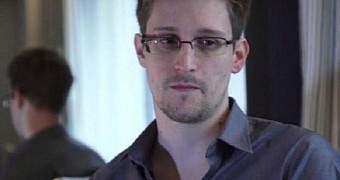It’s only going to be a few more weeks until Laura Poitras’ documentary film about Edward Snowden’s saga is released, but a 90-second trailer has already found its way online.
Called “Citizenfour” after the name Snowden chose to use before actually meeting with Poitras and Greenwald, the film will be released on October 24. The documentary tells the story of Edward Snowden, the former NSA contractor who risked his life to expose the mass surveillance apparatus built by the intelligence agency and its partners.
Laura Poitras, as you may know, is an American documentary film director and producer that now resides in Berlin. She is one of the few people Edward Snowden contacted regarding the NSA files. She has been reporting on them alongside Glenn Greenwald, and was even among those covered by the 2014 Pulitzer Prize for Public Service which was awarded to The Guardian and the Washington Post.
Trailer paints grim picture
“I am a senior government employee in the intelligence community. I hope you understand that contacting you was extremely high-risk,” Snowden explains over the phone in a discussion with Poitras, while painting a clear picture about how the NSA operates.
“Know that every border you cross, every purchase you make, every call you dial, every cellphone tower you pass, friend you keep, sight you visit, email subject you type is in the hands of a system whose reach is unlimited, but whose safeguards are not. In the end, if you publish the source material, I will likely be immediately implicated. I ask only that you assure that this information makes it home to the American public. Thank you and be careful,” continues the trailer.
In May 2013, Edward Snowden took a trove of top secret documents from the National Security Agency and fled the country to Hong Kong where he met with Poitras and Glenn Greenwald. As he was making his way to Cuba, he was left without a valid passport in an airport in Moscow where he ended up spending one month in the transit area before he was offered temporary asylum.
The documents he shared have exposed the underbelly of the spying giant, programs invading people’s privacy just because they could, phone metadata being collected for no reason at all, untargeted surveillance, spying of US allies, the United Nations and many other world leaders, as well as efforts to make encryption obsolete.

 14 DAY TRIAL //
14 DAY TRIAL // 